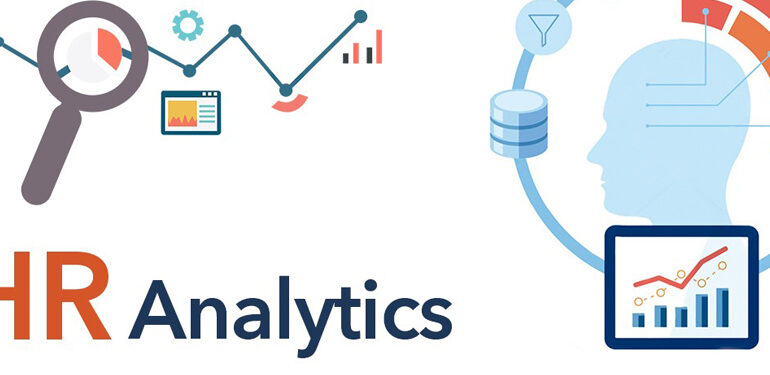The Power of Innovative Rewards Systems in Boosting Performance and Motivation in Small and Medium-Sized Enterprises
Introduction:
In the dynamic landscape of small and medium-sized enterprises (SMEs), nurturing a culture of high performance and motivation is pivotal for sustained success. Central to achieving this is the implementation of innovative rewards systems. This article delves into the crucial role of such systems and offers comprehensive insights on how SMEs can leverage them to drive performance and motivation among their workforce.
The Importance of Building an Innovative Rewards System:
Reward systems form the backbone of organizational culture, shaping behaviors and driving outcomes. By fostering a culture of recognition and appreciation, businesses can instill a sense of belonging and purpose among employees, fueling their drive to excel. Research indicates that companies with effective reward systems experience higher levels of employee engagement and productivity, ultimately leading to enhanced profitability and competitiveness.
Understanding the Dynamics of Motivation:
Motivation lies at the heart of employee performance, influencing their willingness to invest effort and strive for excellence. In the context of SMEs, where resources may be limited, tapping into intrinsic motivators becomes paramount. Innovative rewards systems go beyond traditional monetary incentives, tapping into intrinsic drivers such as autonomy, mastery, and purpose. By aligning rewards with individual values and aspirations, SMEs can cultivate a motivated workforce committed to organizational success.
The Role of Recognition in Driving Performance:
Recognition serves as a powerful motivator, signaling appreciation for employees’ contributions and accomplishments. In SMEs, where every individual plays a significant role, timely recognition can bolster morale and foster a sense of pride in one’s work. Innovative rewards systems integrate various forms of recognition, including peer-to-peer acknowledgment, personalized accolades, and opportunities for skill development. By creating a culture of celebration and appreciation, SMEs can nurture a high-performance environment where employees feel valued and empowered.
Tailoring Rewards to Individual Preferences:
Personalization is key to the effectiveness of rewards systems, as each employee may be motivated by different incentives. In SMEs, where teams often operate closely-knit, understanding individual preferences becomes essential. From flexible work arrangements to professional development opportunities, innovative rewards systems offer a plethora of options to cater to diverse needs. By empowering employees to choose rewards aligned with their goals and interests, SMEs can maximize engagement and satisfaction, driving sustainable performance.
Leveraging Technology for Seamless Implementation:
Technology plays a pivotal role in modernizing rewards systems, enabling seamless administration and tracking of incentives. In SMEs, where efficiency is paramount, leveraging digital platforms can streamline processes and enhance accessibility. From gamified reward portals to mobile applications, innovative solutions offer convenience and transparency, empowering employees to track their progress and redeem rewards effortlessly. By embracing technology-driven solutions, SMEs can elevate their rewards programs, fostering a culture of innovation and agility.
Measuring Impact and Iterating for Success:
Continuous improvement is essential for the long-term viability of rewards systems, necessitating regular evaluation and iteration. In SMEs, where agility is a competitive advantage, adopting a data-driven approach to measure impact becomes imperative. By leveraging key performance indicators (KPIs) and employee feedback, businesses can gauge the effectiveness of their rewards programs and make informed adjustments. From refining reward offerings to enhancing recognition mechanisms, iterative optimization ensures that SMEs stay responsive to evolving employee needs and market dynamics.
Frequently Asked Questions (FAQs):
How can SMEs ensure the sustainability of their rewards systems?
Sustainability hinges on aligning rewards with organizational values and fostering a culture of continuous improvement. By soliciting feedback from employees and stakeholders, SMEs can refine their rewards programs to remain relevant and impactful.
Are non-monetary rewards as effective as financial incentives in motivating employees?
Absolutely. Non-monetary rewards, such as recognition, opportunities for growth, and work-life balance initiatives, can be equally—if not more—motivating for employees, particularly in SMEs where a sense of purpose and fulfillment often outweighs financial gain.
What role does leadership play in driving the success of rewards systems in SMEs?
Leadership sets the tone for organizational culture and shapes the efficacy of rewards systems. When leaders actively champion recognition and demonstrate a commitment to employee development, they inspire a culture of engagement and performance across the organization.
How can SMEs leverage peer-to-peer recognition as part of their rewards strategy?
Peer-to-peer recognition fosters a sense of camaraderie and solidarity within teams, driving collaboration and mutual support. By providing platforms for employees to acknowledge each other’s contributions, SMEs can reinforce positive behaviors and strengthen team dynamics.
What are some cost-effective ways for SMEs to implement innovative rewards systems?
SMEs can explore creative solutions such as cross-training opportunities, flexible scheduling, and employee-led initiatives to enhance motivation without incurring substantial costs. By leveraging existing resources and tapping into intrinsic motivators, businesses can design impactful rewards programs within budgetary constraints.
How can SMEs ensure inclusivity and equity in their rewards systems?
Inclusivity and equity are foundational principles of effective rewards systems. SMEs can promote fairness by establishing clear criteria for rewards allocation, fostering transparency in decision-making, and addressing disparities proactively. By prioritizing diversity and inclusivity, businesses create an environment where every employee feels valued and empowered.
Conclusion:
In conclusion, the importance of building an innovative rewards system cannot be overstated in the context of small and medium-sized enterprises. By embracing a holistic approach to employee recognition and motivation, SMEs can unleash the full potential of their workforce, driving sustainable growth and competitive advantage in today’s dynamic business landscape.




